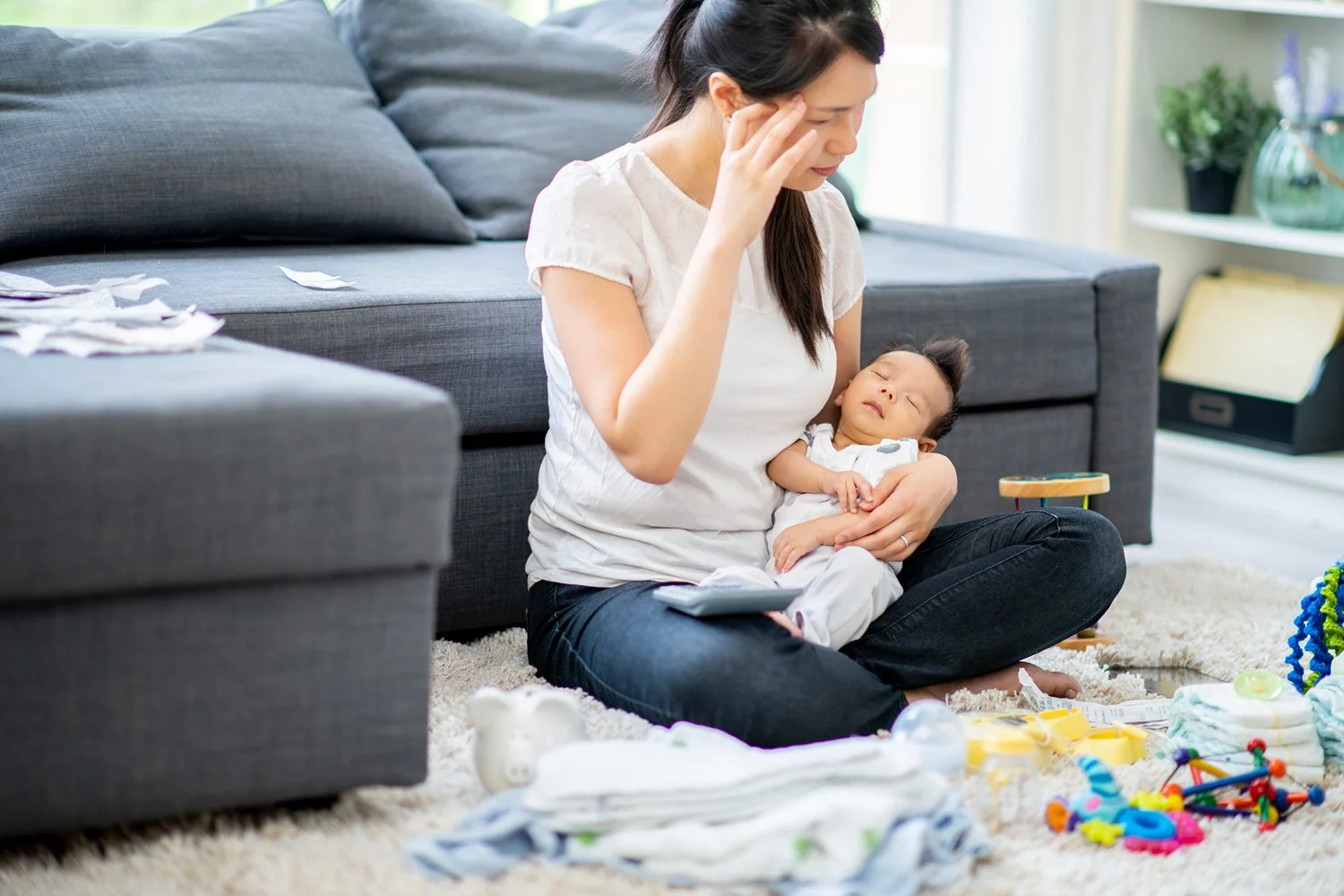What are Postpartum Anxiety and Depression? How to Get the Support You Need
Becoming a new parent is a seismic shift that comes with many emotional and physical changes. Postpartum mood and anxiety disorders (PMADs) are more common than many people think, impacting between 15 to 21% of pregnant and postpartum individuals.
Despite how common PMADs are, they’re not always talked about or fully understood. PMADs include postpartum depression, postpartum anxiety, obsessive-compulsive disorder, PTSD, and postpartum psychosis.
In this blog, we’ll break down what postpartum anxiety and depression look like, how they can show up in daily life, and ways to find the support you deserve, including therapy for anxiety and approaches like EMDR therapy and mindfulness techniques.
What are Postpartum Anxiety and Depression?
Postpartum anxiety and depression are real, common, and treatable conditions that can show up during pregnancy or after childbirth. While some emotional ups and downs are normal, feeling constantly worried, overwhelmed, or disconnected for weeks could be a sign that something deeper is going on.
Signs of Postpartum Anxiety
Constant worrying, especially about your baby’s safety
Racing thoughts that won’t slow down
Trouble sleeping, even when your baby is asleep
Feeling easily overwhelmed or irritable
Physical symptoms like dizziness, nausea, or a racing heart
Avoiding certain situations because of fear or intrusive thoughts
Signs of Postpartum Depression
Feeling sad or hopeless most of the time
Not enjoying things you used to love
Struggling to bond with your baby
Extreme exhaustion, but also trouble sleeping
Changes in appetite—eating too much or too little
Feeling guilty, worthless, or like you’re not a “good enough” parent
Thoughts of self-harm or wanting to disappear
If any of this resonates with you, know that you are NOT failing, and you are NOT alone. Postpartum mental health struggles are incredibly common, and there are ways to feel better.
Why Does This Happen?
There’s no single cause for postpartum anxiety and depression, but a mix of factors can contribute:
Hormonal Changes: Your body goes through massive hormonal shifts during and after pregnancy, impacting your mood.
History of Anxiety or Depression: If you’ve struggled with mental health in the past, you may be more vulnerable postpartum.
Lack of Sleep & Stress: Let’s face it, life is exhausting, and lack of rest can take a toll on your emotions.
Difficult Birth Experience: A traumatic birth or medical complications can increase stress and anxiety.
Feeling Isolated: If you don’t have enough support, the weight of new parenthood can feel even heavier.
How to Get Support and Start Feeling Like Yourself Again
If you’re struggling, you don’t have to tough it out alone. Here are some steps that can help:
1. Talk to Someone Who Gets It
A therapist specializing in perinatal mental health can help you navigate your emotions and feel more in control. Therapy methods like interpersonal therapy, EMDR, and cognitive-behavioral therapy (CBT) help address postpartum anxiety and depression.
2. Lean on Your Support System
You are not meant to do this alone. Talk to your partner, friends, or family. Let them know how you’re feeling and ask for help when needed—even if it’s just someone to hold the baby while you nap.
3. Join a Support Group
Connecting with other parents who are going through similar struggles can be a game-changer. Knowing you're not alone makes a huge difference whether it’s an in-person group or an online community.
4. Give Yourself Grace
There’s no such thing as a perfect parent. Your baby doesn’t need perfection—they need you. Be kind to yourself, and don’t compare your journey to others.
5. Get Some Rest
Sleep deprivation makes everything harder. If you have a partner, alternate shifts. If you have family or friends nearby, take them up on offers to help. Even small moments of rest can make a big difference.
6. Consider Medication If Needed
Sometimes, therapy and lifestyle changes aren’t enough on their own, and that’s okay. If your symptoms are severe, talk to your doctor about safe medication options that can help.
7. Move Your Body When You Can
Simple movement, like a short walk or stretching, can help lift your mood and relieve stress. Practicing mindfulness exercises can also be beneficial in calming the nervous system and promoting relaxation.
When to Reach Out for Immediate Help
If you are in crisis, you should visit your nearest emergency room or call the National Suicide and Crisis Lifeline at 988 for 24/7, free, and confidential crisis support.
You’re Not Alone in This
Postpartum anxiety and depression can feel isolating, but support is out there, and healing is possible. If you’re struggling, reach out to a therapist, a trusted friend, or a support group.
You deserve to feel like yourself again.
As a perinatal-trained therapist who experienced and recovered from postpartum anxiety, I would be honored to provide support and guidance to you.

